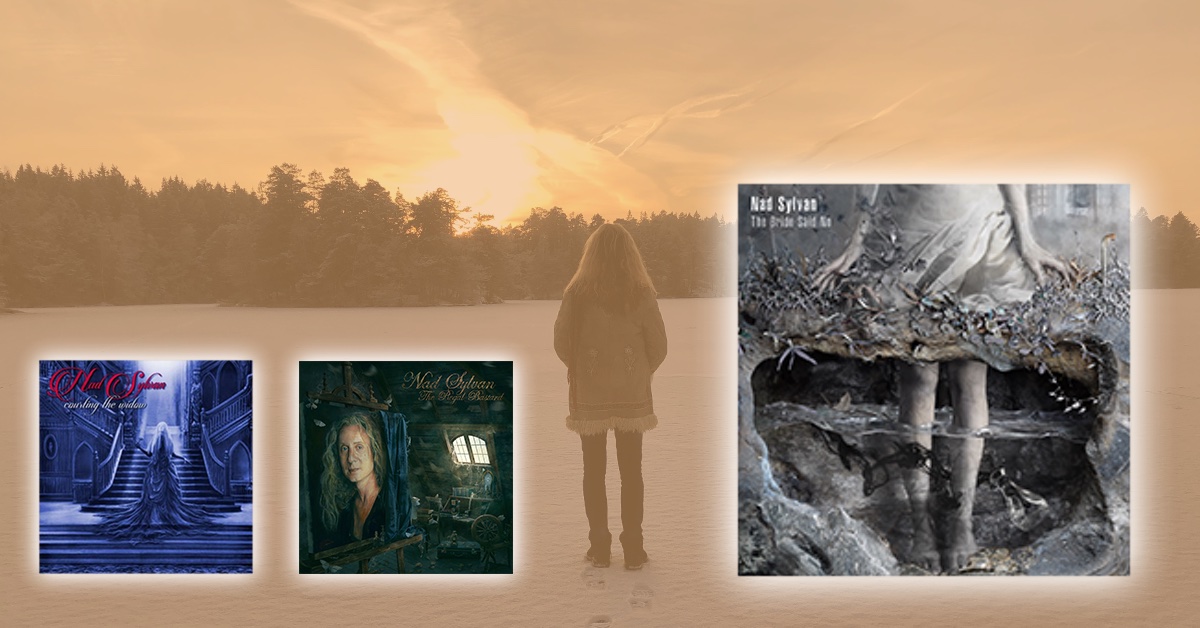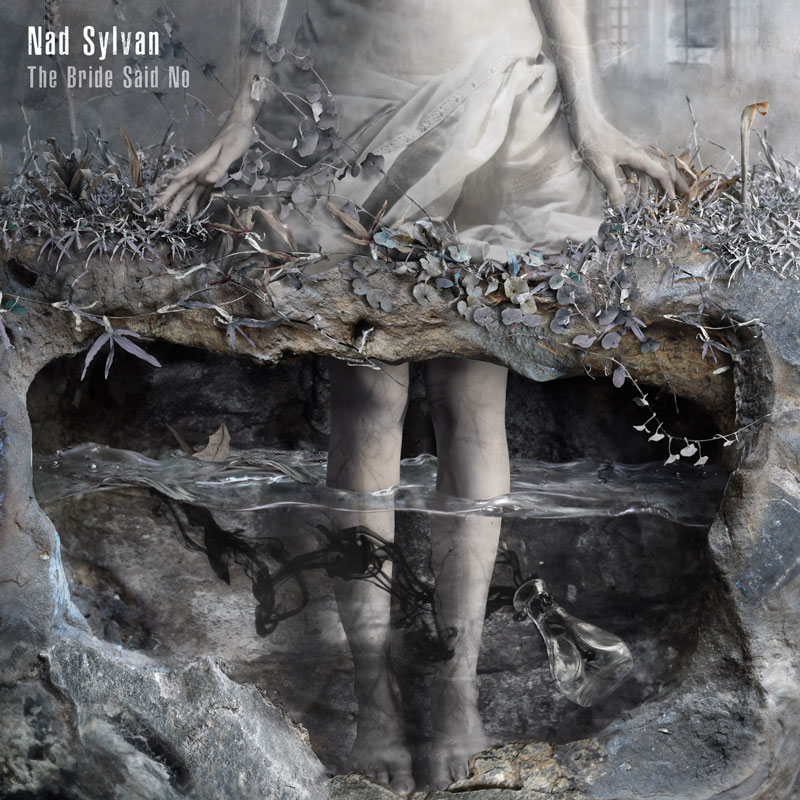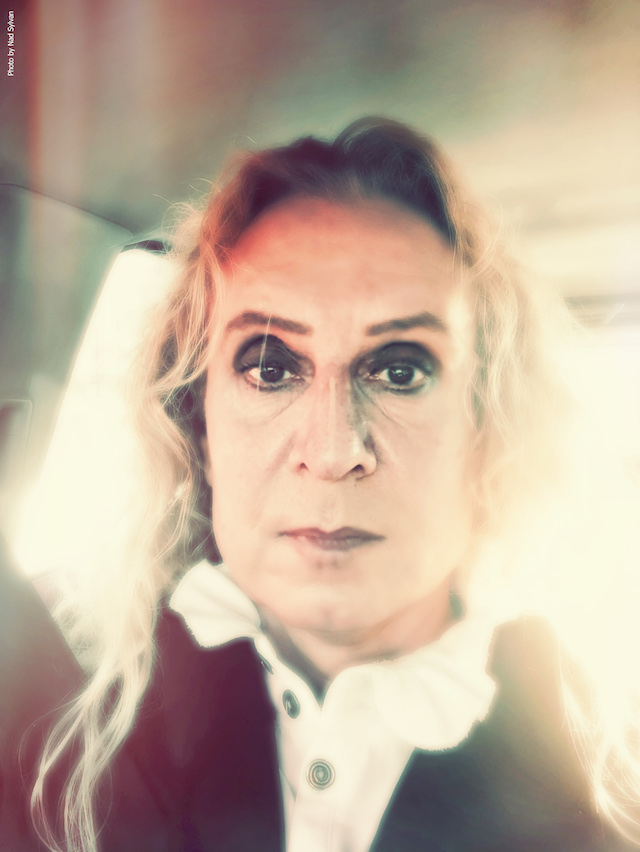


First things first: The hero has survived the crash at the end of the previous album, and the title of the second volume already reveals that the widow-turned-bride says no … which is a shame for the Vampirate, but not at all undeserved. After all the widow mourns for his own son who apparently passed on not quite without any involvement by the Vampirate. Sounds weird? It is even weirder that the main character is still likeable. And though the album title is kind of a spoiler it does not get boring.
What is the difference between the first and the second album? Recorded after Steve Hackett’s 2016 tour, the second album has more punch and is much straighter. There is more rock in the album and it sounds more modern. It is the harder album, though it has its counterpoints and is as balanced as the debut. The latent aggression from the first album really surfaces here. While Nad wrote the songs for Courting The Widow over a number of years while he was still in Unifaun, most of The Bride Said No developed in the nine months after the Genesis Revisited tour ended.
As far the personnel is involved there are few changes. Nick Begg was too busy with other projects, so he is replaced with another legendary musician: Tony Levin shares the bass work with Jonas Reingold. Swedish musician and producer Anders Wollbeck is also new.
Female voices appear more often. Jade Ell is still on board; Nad worked a lot with her in the 1990s and on the first album. She brought Sheona Urquhart (also on sax) and Tania Doko who will play an important role.
Bridesmaids (1:17)
Tinkling sounds kick off the album before a sound as if from a musical box introduces a slightly weird motive that is taken up by Jade Ell and Sheona Urquhart starring as the bridesmaids. The motive will recur throughout the album. Nad remains in the background during this intro that is not much longer than a minute. This puts it into the good tradition of short songs opening an album (cf. Steve Hackett’s Wolflight or At The Edge Of Light two years before and after this album). Bridesmaids is a peculiar track that grows dangerously towards the end and moves into…
The Quartermaster (5:38)
 …a shuffle-style guitar rhythm that introduces The Quartermaster. The calm introduction does not last very long, for the song really breaks out after a couple of seconds with (dissonant) organ chords, pounding bass, synth solos and fantastically banging drums by Nick d’Virgilio. A very intense beginning, and musically very different from Carry Me Home from the previous album. This is a joint composition by Nad and one Martin Skoog. Apparently, Skoog showed him a demo of this song which Nad completed and recorded. The Quartermaster is a highpoint of this trilogy; the beginning in particular indicates the new general direction. After a brief reprise of the introduction the drums thunder once more and the organ whirls before the song suddenly ends … brilliant!
…a shuffle-style guitar rhythm that introduces The Quartermaster. The calm introduction does not last very long, for the song really breaks out after a couple of seconds with (dissonant) organ chords, pounding bass, synth solos and fantastically banging drums by Nick d’Virgilio. A very intense beginning, and musically very different from Carry Me Home from the previous album. This is a joint composition by Nad and one Martin Skoog. Apparently, Skoog showed him a demo of this song which Nad completed and recorded. The Quartermaster is a highpoint of this trilogy; the beginning in particular indicates the new general direction. After a brief reprise of the introduction the drums thunder once more and the organ whirls before the song suddenly ends … brilliant!
When The Music Dies (7:00)
Things calm down a bit again. There is a harmonious intro to a steady rhythm of synth choirs and rumbling bass sounds. This song showcases Nad and Anders Wollbeck’s talents as producers. They give it a crystal sound and create lots of dynamism in the changes between the quiet verses and the chorus that towers over the track. You can also hear Tony Levin’s Chapman stick very well during the chorus, too. The title already indicates that this is about transiency, perhaps about the Vampirate being aware of but not accepting it. The songs streams by you as in a dream and fulfills its potential in its seven minutes.
The White Crown (6:15)
A harpsichord variant of the Bridesmaids motive introduces this lesson in Swedish humour. This song attempts to accommodate as many stylistic devices as possible, even though they may not really work together. Nad still manages to tame them and yoke them together in this one song. We have orchestral bits, a powerful riff from Jonas Reingold’s electric guitar (!) and weird keyboards sounds interspersed. All this can make a song sound terrible torn apart, but all these elements are combined in such a clever way that The White Crown manages to remain consistent – an efficient presentation indeed. How else would you describe the inner turmoil of a bride right before the wedding ceremony than with a song like this … it needs some drama. A hard song to label, but the quality of the music and the fun the musicians have at playing make up for it.
What Have You Done (8:29)
Many fans will probably describe this song as the emotional highpoint of the album. Written by Nad and Jade Ell, this song begins with piano only and sounds almost like a song adapted for a musical. Sweet keyboards soon join in – call it schmaltzy, but it does fit the melancholy mood (a rich meadow lit by a summer sunset appears before the inner eye). The track is a wonderful duet between Nad and Jade Ell bevor Doane Perry and Tony Levin join in on drums and upright bass, respectively. Then a stroke of genius: Steve Hackett comes in with one of the most emotional guitar solos of recent years. To top even that, a second guitar comes in and the song quietens down again before Guthrie Govan plays an equally fantastic solo. Having not one, but two brilliant guitarists in one song and letting them solo one after the other leaves me speechless – it lifts the song to a whole new level. You can also hear that both guitarists have different approaches to playing. Outstanding!
Crime of Passion (Vampirate's Anthem) (5:59)
Dark choir parts anticipate the chorus of the song. They give way to a soundscape of strings and guitars that would not have stood out on a recent album by Steve Hackett – who happens to play the guitar here. This is a special song, the signature song, as it were, of the vampirate, his anthem. It sounds sufficiently dramatic to immerse yourself in the hero’s emotional world who gets involved with the widow yet still feels lonely. You feel with the vampirate, music and lyrics represent his sorrow and confusion very well. Note Nad’s perfectly arranged vocals, particularly when he sings the yearning last line of “in my god-forsaken life”.
At this point we note how versatile this album is in itself as well as compared to the first album.
A French Kiss In An Italian Cafe (5:58)
A slightly distorted guitar riff, backing strings and organs start off the penultimate song. The verses resemble those of When The Music Dies, but sparse choir chords make it sound gloomier. Tony Levin’s Chapman stick really grooves and keeps the rhythm alive with Doane Perry’s smooth drums. Just when you’d never expect it a saxophone solo by Sheona Urquhart begins. It fits well into the song and adds a touch of blues to it. Nothing much happens in this song, but it is a break from the bombast and a good transition from the Vampirate’s mourning song and the bride’s decision not be be one.
The Bride Said No (12:26 …officially)
 The longest track on the album, and it has everything you could wish from a called-off wedding. The bride has to make a decision, and she begins to wonder during the song. Actually, everybody knows what the answer will eventually have to be. The song is a duet arranged almost like a dialogue. Tania Doko’s warm and slightly husky voice gives life to the bride’s role – the colour of her voice reminds me of Ninet Tayeb (Steven Wilson). Anger bursts out of her strong voice. She plays the role in the best possible way. The introduction is jazz-like. Nad plays a keyboard solo in the middle while Jonas Reingold’s characteristic bass playing accompanies him (and solos at the same time). Another vocal parts leads into the finale that sees the whole band play while Tania Doko screams out the utter frustration of the bride. Ironically, the decisive “no” can be heard as a calm and sober statement – and that’s that. We hear the quick steps of a run-away bride as the church organ explodes. The album ends with a musical box variation of the melody with which it began…
The longest track on the album, and it has everything you could wish from a called-off wedding. The bride has to make a decision, and she begins to wonder during the song. Actually, everybody knows what the answer will eventually have to be. The song is a duet arranged almost like a dialogue. Tania Doko’s warm and slightly husky voice gives life to the bride’s role – the colour of her voice reminds me of Ninet Tayeb (Steven Wilson). Anger bursts out of her strong voice. She plays the role in the best possible way. The introduction is jazz-like. Nad plays a keyboard solo in the middle while Jonas Reingold’s characteristic bass playing accompanies him (and solos at the same time). Another vocal parts leads into the finale that sees the whole band play while Tania Doko screams out the utter frustration of the bride. Ironically, the decisive “no” can be heard as a calm and sober statement – and that’s that. We hear the quick steps of a run-away bride as the church organ explodes. The album ends with a musical box variation of the melody with which it began…
…that's what you think unless you don’t press stop. After a couple of minutes of silence an optimistic, solemn song with quite a „retro“ sound begins. Black Sheep is a hidden track and an encore. It was written in 1998, so this is a real relic from the time when Nad was in his 30s and had to struggle hard to get a record deal. As we know, that would not happen for another seventeen years. The track makes sense at this point. And who doesn’t know what it means to be considered the black sheep because the people around you don’t get your ideas? Though the song is very autobiographical, there are links to the characters of the trilogy: Both the vampirate and the bride have characteristics of a Black Sheep.
At the end of the second part of this trilogy we see that Nad follows his own way and blazes new trails. The album and, in fact, the whole trilogy has so much variety in it that you never feel Nad was going over the same ground again. He has found his style, but he adapts it to the requirements. This makes the albums very well-balanced without seeming forced or artificial.
The final part of the trilogy moves into another direction again. The vampirate who has been ditched at the altar does the same. What surprise it would be if the hints prove true and the quartermaster is, in fact, the royal bastard from the following album …
... on to Part Three: The Regal Bastard
